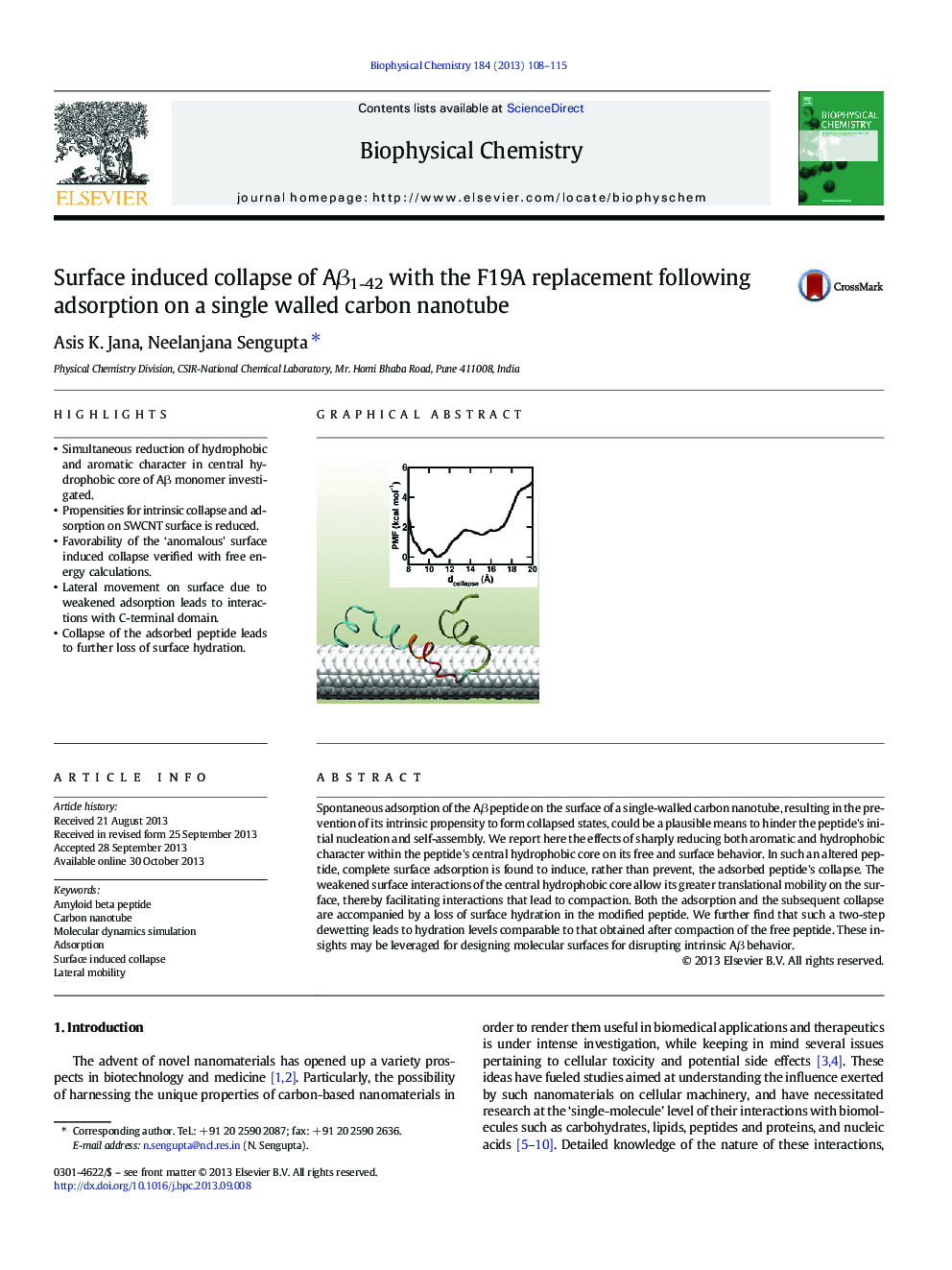| Article ID | Journal | Published Year | Pages | File Type |
|---|---|---|---|---|
| 5371009 | Biophysical Chemistry | 2013 | 8 Pages |
â¢Simultaneous reduction of hydrophobic and aromatic character in central hydrophobic core of Aβ monomer investigated.â¢Propensities for intrinsic collapse and adsorption on SWCNT surface is reduced.â¢Favorability of the 'anomalous' surface induced collapse verified with free energy calculations.â¢Lateral movement on surface due to weakened adsorption leads to interactions with C-terminal domain.â¢Collapse of the adsorbed peptide leads to further loss of surface hydration.
Spontaneous adsorption of the Aβ peptide on the surface of a single-walled carbon nanotube, resulting in the prevention of its intrinsic propensity to form collapsed states, could be a plausible means to hinder the peptide's initial nucleation and self-assembly. We report here the effects of sharply reducing both aromatic and hydrophobic character within the peptide's central hydrophobic core on its free and surface behavior. In such an altered peptide, complete surface adsorption is found to induce, rather than prevent, the adsorbed peptide's collapse. The weakened surface interactions of the central hydrophobic core allow its greater translational mobility on the surface, thereby facilitating interactions that lead to compaction. Both the adsorption and the subsequent collapse are accompanied by a loss of surface hydration in the modified peptide. We further find that such a two-step dewetting leads to hydration levels comparable to that obtained after compaction of the free peptide. These insights may be leveraged for designing molecular surfaces for disrupting intrinsic Aβ behavior.
Graphical abstractDownload full-size image
